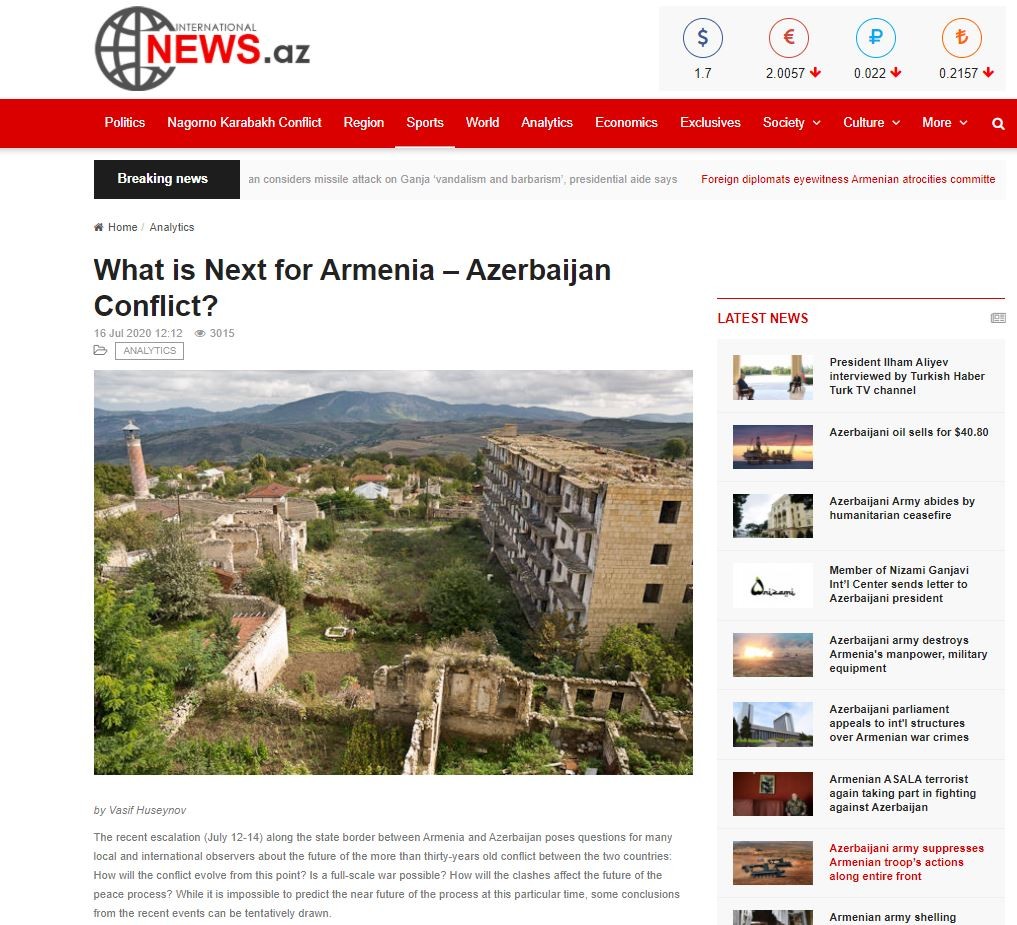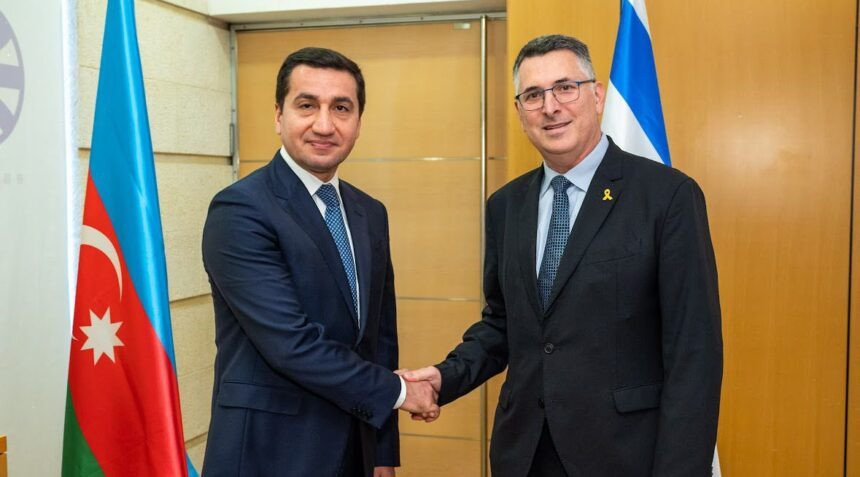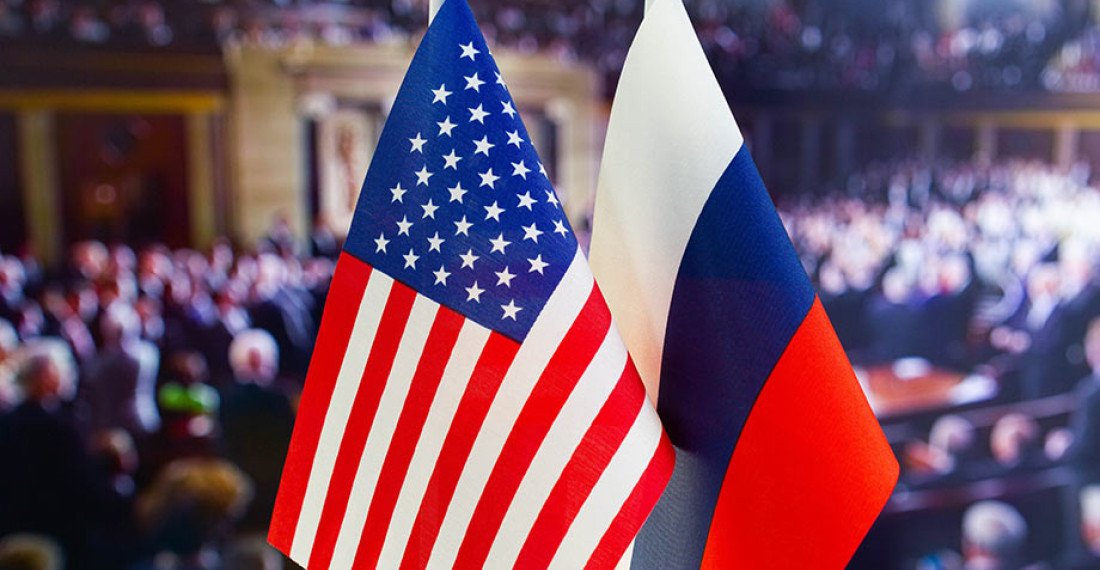The recent escalation (July 12-14) along the state border between Armenia and Azerbaijan poses questions for many local and international observers about the future of the more than thirty-years old conflict between the two countries: How will the conflict evolve from this point? Is a full-scale war possible? How will the clashes affect the future of the peace process? While it is impossible to predict the near future of the process at this particular time, some conclusions from the recent events can be tentatively drawn.
Above all, the intense clashes between the two sides resulting in death of in total more than 15 military servicemen and a civilian demonstrated that the peaceful initiatives made in the aftermath of Armenia’s governmental change in 2018 had delivered no lasting positive outcome. As a matter of fact, there had been some important developments over the last two years. Although the two conflicting parties failed to reach a tangible breakthrough in negotiations, they took necessary measures to prevent their diplomatic failure from reflecting on the line of contact.
Direct leadership contacts and communication channels between security personnel and political representatives, agreed between Azerbaijan’s President and Armenia’s Prime Minister in Dushanbe in October 2018, helped minimize clashes and casualties in 2019. Statistics provided by the International Crisis Group show a significant decrease in the number of casualties last year compared to previous years. For example, while 39 military servicemen were killed in 2017, the year before Armenia’s power change in 2018, casualties dropped to 8, including one civilian, in 2019.
Moreover, agreements on the establishment of humanitarian projects and allowing support visits by relatives of detainees held in each other’s territories, as well as of journalists, have helped reduce tensions. In November, the two countries performed the first exchange of journalists since 2001. Three journalists from each side joined the initiative and met with the expert community and media representatives from the other side. Importantly, Azerbaijani journalists were also allowed to visit the Nagorno-Karabakh region, where they met the local Armenian community.
The provocation by the Armenian side on the state border on July 12 with apparent intention to push for a joint action by the Collective Security Treaty Organization (CSTO) has likely put an end to these peaceful initiatives, at least for the near future. The intense level of confrontation between the warring countries demonstrates the two are not likely to return to the agenda of preparing populations for peace anytime soon, as the AIR Center’s Chairman Farid Shafiyev recently stated, “the window of opportunity for a breakthrough in the negotiations has now closed”, adding that “peace is no longer on the horizon in the South Caucasus.”
Another implication of the recent clashes can be expected for the international mediation of the negotiations between Armenia and Azerbaijan. Important to note that, the Azerbaijani side has declared its dissatisfaction with the international mediation since a few years. But most importantly, in one of his most recent media appearances, on July 6, Azerbaijani President Ilham Aliyev openly criticized the international mediators in the negotiations, declaring that the peace process has become “meaningless”.
In a strong worded statement regarding the Armenia’s destructive attitude to the negotiations, President Aliyev stated that “Today, the negotiation process is not moving. Video conferences of the foreign ministers of Armenia and Azerbaijan are meaningless. It simply is meant to show that the Minsk Group [the institution of the OSCE tasked with the coordination of negotiations between the two sides] is active. But is it? To be active means to act.”
It can be expected that in the upcoming months there will be some moves by the international mediators to revitalize the peace process and achieve a breakthrough, at least at a limited scale. Importantly, some initiatives in this direction had been already observed over the last few months from the Russian government that is a major mediator in the negotiations being also a Co-Chair of the OSCE’s Minsk Group along with France and the United States. For example, during a videoconference organized by the Gorchakov Public Diplomacy Fund, Russian Foreign Minister Sergei Lavrov declared Russia’s support to “firmly established format” of negotiations underscoring the significance of the draft documents on the agenda as a “very important step in implementing the [United Nations] Security Council resolutions”.
Hopefully, the mediating parties have noted the urgency of a breakthrough after the recent clashes which runs risk of spiraling out of control all of a sudden. However, is a full-scale war possible under the existing circumstances? While it is reported that the tensions have already eased between the sides on the border, an all-out war cannot be excluded. The tensions are rather strained in the region and the citizens are outraged by the loss of military servicemen and civilians in the course of the recent clashes. Importantly, the popular indignation is more dramatic in Azerbaijan provoked also by the recent political moves in the town of Shusha, in occupied Karabakh, where the Armenian side held an inauguration ceremony for the so-called new president of the local regime in a place of deep cultural significance to Azerbaijanis.
The possibility of an all-out war has not been ruled out by Polad Bulbuloglu, Azerbaijan’s Ambassador to the Russian Federation, either. Declaring that it is more important to ask why the recent clashes happened than wondering who started them, Bulbuloglu asserts that this all happens “[b]ecause the territories of Azerbaijan are occupied. Because foreign troops forcefully keep the territory of Azerbaijan. I am not shy and say that it is time to resolve this conflict on the basis of international law, and international law is completely on the Azerbaijani side”
https://www.news.az/news/what-is-next-for-armenia-azerbaijan-conflict








